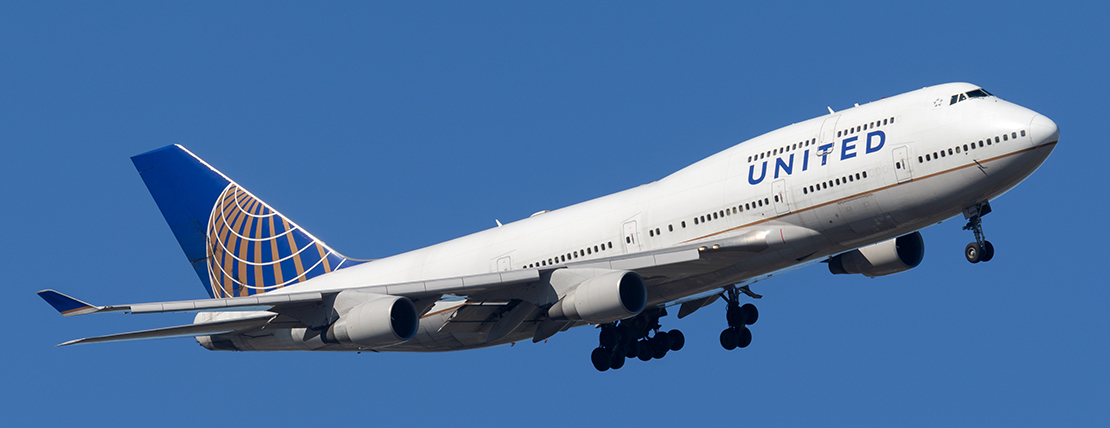United Airlines and its pilots union have agreed to a preliminary labor deal that includes pay increases of as much as 40.2% over four years, CNBC reports.
The deal ends months of tense negotiations and airport pickets and makes United’s pilots the latest from a major airline to reach an agreement for higher wages amid the post-pandemic travel boom.
Delta Air Lines and American Airlines pilots also reached new labor deals in recent months that included similar pay increase plans. Southwest Airlines and its pilots union haven’t reached an agreement and the union is seeking release from federal mediation, which is a step toward a potential strike, CNBC noted.
United pilots’ union said the tentative deal is worth about $10 billion. It includes a host of other improvements including overtime pay, holiday pay and scheduling. Cumulative pay increases range from 34.5% to 40.2% based on the type of aircraft a pilot flies. The immediate pay bumps are in the range of 13.8% to 18.7%.
“We promised our world-class pilots the industry-leading contract they deserve, and we’re pleased to have reached an agreement with ALPA on it,” United CEO Scott Kirby said in a LinkedIn post. “The four-year agreement, once ratified, will deliver a meaningful pay raise and quality of life improvements for our pilots while putting the airline on track to achieve the incredible potential of our United Next strategy.”
The pilots rejected a preliminary 18-month deal in 2022, CNBC reported.
Four-Day Office Rule Gains Traction at NYC Law Firms
Amid the ongoing struggle between employees and employers to find a balance between full-time remote work and full-time, in-office mandates, several New York law firms have settled on four days in the office and one day remote, Reuters reports.
Weil, Gotshal & Manges announced their plans most recently to require their lawyers to be in the office Monday through Thursday beginning Sept. 5. Firms Skadden, Arps, Slate, Meagher & Flom and Davis Polk & Wardwell adopted the same mandate earlier this summer, setting what could become the new industry standard.
Weil's email said the 1,100-lawyer firm has monitored office policies of other law firms and its own clients.
“Over the past year, we have all seen the many benefits that come with people working regularly in-person – especially with the predictability of knowing people will be in consistently on the same days,” Weil's memo said, citing improved attorney mentorship, professional development and morale.
In addition to flexible Fridays, Weil associates and counsel will get 12 "flexible remote days" per year, the firm said. Davis Polk created a similar remote day "bank" for lawyers and business services personnel, who will be able to work remotely an additional 16 days annually.
Many U.S. law firms had begun moving toward a three-day in-office requirement as the pandemic threat subsided while others have remained remote indefinitely.
Big Four Accounting Consultants Trimming Staff
The Big Four accounting firms are trimming staff after forecasting slower growth as more businesses scale back on third-party help in certain areas, the Wall Street Journal reports.
Deloitte, Ernst & Young, KPMG and PricewaterhouseCoopers are facing the consequences of aggressive hiring over the past two years as the pandemic spurred higher demand for consulting in areas such as corporate strategy, coupled with lower attrition than expected during the first half of the year, the Journal notes.
The recent rounds of layoffs have been heavily focused on the advisory sides of the firms. KPMG laid off about 5% of its U.S. staff in June — including advisory, tax and back-office people — four months after cutting some advisory personnel, nearly 2% of U.S. staff. In April in the U.S., Deloitte cut 1.5% of its staff and EY 5%. PwC said its U.S. unit hasn’t had layoffs and isn’t planning any. Outside the Big Four, Grant Thornton let go 3% of its U.S. staff in May.
While hiring soared in the wake of the pandemic, other data sets show exits were also rising. In the U.S. at the four firms, exits — both voluntary and not — have generally climbed each year since at least 2019, according to a review of online professional profiles by Revelio Labs, a provider of workplace data. In 2022, roughly 56,600 people collectively left the firms, up 8.3% from a year earlier in the Revelio data.
However, that scenario flipped this year, even amid layoffs. Exits at the four big firms have dropped, falling 11.6% through June from the year-earlier period, to about 21,400 in the U.S., according to Revelio.
“Life became more flexible and folks have found reasons to stay where they might have been ground to a fine powder prior years,” said Michael Shaub, an accounting professor at Texas A&M University, referring to remote work and salary increases that might have kept some from resigning this year. “Now the firms are saying we can’t keep all these people.”
Consulting firms’ net head count growth will likely be lower this year than it has been in recent years, though it varies widely by practice, Andrew Nicholas, a research analyst at investment bank William Blair & Co. told the Journal. If demand hasn’t fallen off a cliff and attrition is lower, firms will have fewer open roles to fill, reducing the number of job postings, he said. “You would anticipate that to help bridge that gap,” he said.
U.S. job postings at KPMG, Deloitte and EY across all business lines dropped 76% in July compared with a year earlier, noted William Blair, which doesn’t track PwC due to an inability to determine the number of positions on its internal job postings board.
Study Finds Senior Leaders More in Favor of Remote Work
New research from McKinsey & Co. shows that top-tier executives strongly prefer the option of working from home at least part of the time, the Wall Street Journal reports.
“It’s a group of talent that has a lot of sway,” around company culture and what attendance looks like, Brian Vickery, a partner at McKinsey, told the Journal.
In a survey of 13,000 office workers in six countries published this month, McKinsey found the largest share of employees who strongly prefer to work from home were those who earn more than $150,000. That group said they were likely to quit their jobs if called back to the office every day and were willing to trade more than 20% of their compensation to work their preferred number of days at home.
In white-collar sectors like finance and professional services, working from home is more prevalent, McKinsey found. That is especially true at the biggest firms in those industries.
The survey also showed 44% of the most senior workers are holding fast to their work-from-home preferences — evidence that continued flexibility remains a lure for attracting and retaining top performers.
Editor’s Note: Additional Content
For more information and resources related to this article see the pages below, which offer quick access to all WorldatWork content on these topics:




